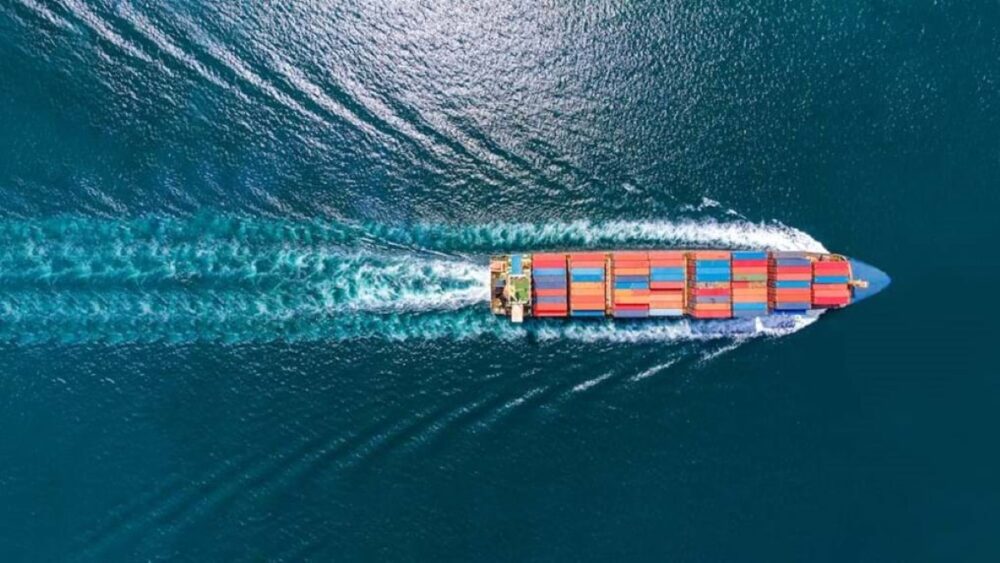~ IChemE supports National Engineering Policy Centre analysis on transition to low-carbon fuels ~
The Institution for Chemical Engineers (IChemE), the internationally recognised qualifying body and learned society for chemical, biochemical and process engineers, has contributed to newly published analysis to support the UK’s maritime sector in transitioning to low-carbon fuels.
Spearheaded by the National Engineering Policy Centre, with support from Sargent Centre for Process Systems and Engineering – a multi-institutional research centre of department at Imperial College London and University College London – the publication of Low-Carbon Maritime Fuelling coincides with the imminent release of a new maritime net zero framework from the International Maritime Organisation.
The report – scoped by the National Engineering Policy Centre and IChemE in collaboration with the Department for Transport – aims to support policymakers’ understanding of the systemic implications of choices around future low-carbon maritime fuels.
The report examines four fuel options: hydrogen, ammonia, methanol and synthetic hydrocarbons, and considers the regional impact and infrastructure implementation that may be required. It also sets out the combination of fuels that can be considered to reduce emissions across the sector by the targets outlined in the UK’s Maritime Decarbonisation Strategy. Further analysis is needed to determine how this energy mix of low-carbon fuels should be combined.
“This report represents a significant leap forward in the conversation about clean maritime fuel for the UK,” explained Claudia Flavell-White, Director, Learned Society at IChemE. “It will play a crucial role in helping policymakers navigate the decisions they must make in shifting to a cleaner maritime sector.
“Chemical engineering is a big part of spearheading the transition to a greener maritime industry, and we are delighted to see the expertise of chemical engineers leading this important debate,” Flavell-White concluded.
The report’s evaluation of each of the individual fuels indicates that renewable sources are economically competitive with traditional fossil fuel-based sources used in the maritime industry.
Although producing renewable maritime fuels is more energy-intensive and expensive than traditional fossil fuels, the additional cost is found to be reduced once the wider costs of carbon production and environmental impact are considered. Advances in renewable energy technologies and production processes may also help to decrease costs and increase efficiency over time.
“Maritime industry creates around three per cent of global greenhouse gas emissions and is crucial for transporting over 95 per cent of UK imports and exports according to analysis by the Department for Transport, making it an important sector to decarbonise for a net zero economy,” explained Professor Nilay Shah OBE, IChemE fellow at Imperial College London, one of the lead authors of the report.
“The decisions that UK maritime takes towards a low-carbon future need to be considered holistically, with other parts of the energy system in mind.
“Maritime won’t be the only sector to use these fuels and different low-carbon options: each require different types of investment in energy production or new infrastructure. We hope that this report, combined with further operational cost analysis, will help policymakers to choose the energy mix of alternative fuels that will deliver the most impact to reduce emissions,” concluded Professor Shah.
Trade-offs between each of the four low-carbon fuels examined will need to be carefully considered. Hydrogen is found to be the cheapest low-carbon fuel to produce, but it would require significant overhauls in existing fuel infrastructure and ship engines.

Using synthetic hydrocarbons can rely on existing infrastructure, vessels and engines, however, it is the most expensive fuel to produce. Ammonia and methanol are practical to store on a large scale and easier to transport using existing infrastructure, but additional costs would be required to convert a shipping fleet to operate using these fuels.
Producing alternative maritime fuels will also require identifying suitable locations within the UK that are close to sources of renewable electricity and regions linked to the shipping industry with high demand for maritime fuels.
There are significant demands for maritime fuel in the south and south-east of England, but northern Britain has greater access to wind power for generating renewable electricity. Using hydrogen in these regions may also require significant additional investment in transport or electricity transmission infrastructure.
You can read the full findings from Low-Carbon Maritime Fuelling, by accessing it on the Institution for Chemical Engineers’ website.








